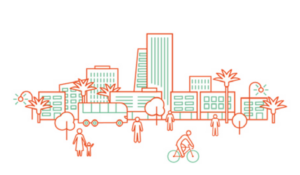Experimentation in local authorities
 The principles of lean experimentation can be creatively applied in organisations for public good around the world, whether that’s public and private not-for-profits or local and national governments, where, until recently, the paradigm of New Public Management (NPM) has dominated. This thinking, concerned primarily with performance targets and corporate, linear project management, is very good at measuring key metrics for delivery but has offered little scope for evaluating the potential fit and impact of a potential solution, and adapting existing plans in the face of such evidence. Ultimately, with its top-down approach to product or service roll-outs, NPM methods do not give space to test the underlying assumptions about how an innovation might thrive within the complex world we live in.
The principles of lean experimentation can be creatively applied in organisations for public good around the world, whether that’s public and private not-for-profits or local and national governments, where, until recently, the paradigm of New Public Management (NPM) has dominated. This thinking, concerned primarily with performance targets and corporate, linear project management, is very good at measuring key metrics for delivery but has offered little scope for evaluating the potential fit and impact of a potential solution, and adapting existing plans in the face of such evidence. Ultimately, with its top-down approach to product or service roll-outs, NPM methods do not give space to test the underlying assumptions about how an innovation might thrive within the complex world we live in.
The current state-of-play for local authorities is one that carries a strong legacy of implementation under the New Public Management school. Local authorities often work in quite linear or “waterfall” ways, are hierarchical, and often, overly bureaucratic. At the same time, local authorities are being asked to be more agile and iterative in their approach to deliver projects for public value but their existing structures are often unmatched to these demands.
The challenge becomes even more salient as local authorities are increasingly asked to own and deliver public services that are more user-centred, apps-based, and citizen-led, in what is a very complex and uncertain time.
For local authorities to occupy an important role in meeting citizens’ needs in the future, taking an experimental approach is fundamentally important. This is because of the changing nature of the solutions they now must build, the complexity of the challenges citizens face, and the desire for local authorities to work with limited budgets and achieve value for money where these solutions often “fail” in their development.
A shift away from traditional methods of project management is therefore needed, to support local authorities to embrace uncertainty and design projects that allow for acting on evidence, adapting or pivoting, and putting learning (about their solutions, their users, and other stakeholders) at the heart of their agenda.
However, it’s important to emphasise that an experimental approach must come from a place of humility and openness to uncertainty, which is no small ask on public sector workers who are broadly used to existing institutional norms that incentivise certitude and “having the right answers”. Accepting that most new ideas “fail” – especially digital solutions – offers little psychological safety for teams that might not have very much experience delivering digital transformation projects. For local authorities, this means that experimentation is as much a mindset shift that needs to be cultivated as it is a question of adopting new internal mechanisms or strengthening public sector capacity. The mindsets, mechanisms and methods need to be addressed together by the local authority, which requires challenging, progressive change at the organisation-level.


